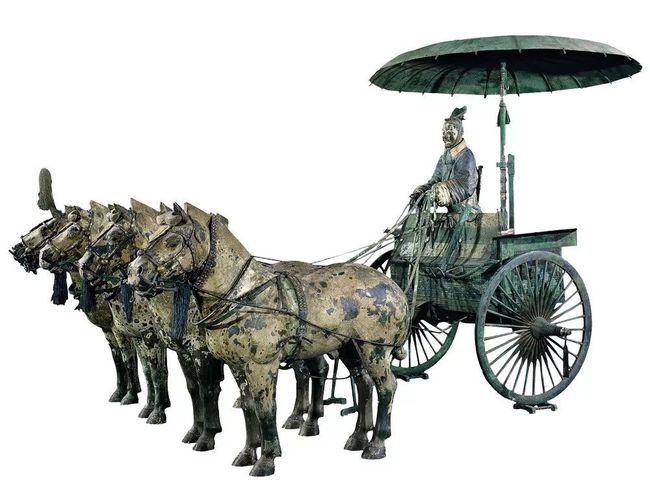
How Many Terracotta Army Chariots Are There?
The Terracotta Army is one of the most impressive archaeological discoveries of all time. The army of life-sized terracotta figures was buried with Qin Shi Huang, the first emperor of China, in the 3rd century BC. The figures were meant to protect the emperor in the afterlife.
The Discovery of the Terracotta Army
The Terracotta Army was discovered in 1974 by farmers digging a well in Xi'an, China. The farmers stumbled upon a pit filled with life-sized terracotta figures, and the discovery quickly attracted the attention of archaeologists worldwide.
The Chariots of the Terracotta Army
Current estimates are that in the three pits containing the Terracotta Army there were over 8,000 soldiers, 130 chariots with 520 horses and 150 cavalry horses, the majority of which are still buried in the pits near Qin Shi Huang's mausoleum.
The chariots are one of the most impressive parts of the Terracotta Army. The chariots are made of wood and bronze and are pulled by teams of four horses. The chariots are highly detailed, and they provide a glimpse into the military technology of ancient China.
There are two main types of chariots found in the Terracotta Army:
- War chariots: These chariots were used in battle, and they were typically manned by a driver and a warrior armed with a bow and arrow.
- Command chariots: These chariots were larger and more elaborate than war chariots. They were used by high-ranking officers, and they typically had a roof to protect the occupants from the elements.
The chariots are just one part of the vast Terracotta Army complex. The complex is thought to cover an area of over 50 square kilometers and contains thousands of other figures, including horses, acrobats, and musicians.
The Significance of the Chariots
The chariots of the Terracotta Army are significant for a number of reasons. First, they provide valuable insights into the military technology of ancient China. The chariots are highly detailed, and they show the sophisticated level of craftsmanship that was present in China during the Qin dynasty.
Second, the chariots are a symbol of the power and wealth of the Qin dynasty. The Qin dynasty was one of the most powerful dynasties in Chinese history, and the Terracotta Army is a testament to its wealth and power.
Finally, the chariots are a reminder of the importance of horses in ancient Chinese warfare. Horses were essential for transportation and communication, and they played a vital role in battle.
FAQs
Q: How many horses are buried with the Terracotta Army? A: There are thought to be around 650 horses buried with the Terracotta Army, the majority of which are still buried in the pits.
Q: Are the chariots life-size? A: Yes, the chariots, like the warriors, horses and other figures are all made to be life-size.
Q: Were the chariots pulled by real horses? A: No, the horses are also made from terracotta. However, the detail and craftsmanship make the horses appear remarkably realistic.
note: This return of all, without the author's permission, may not be reproduced